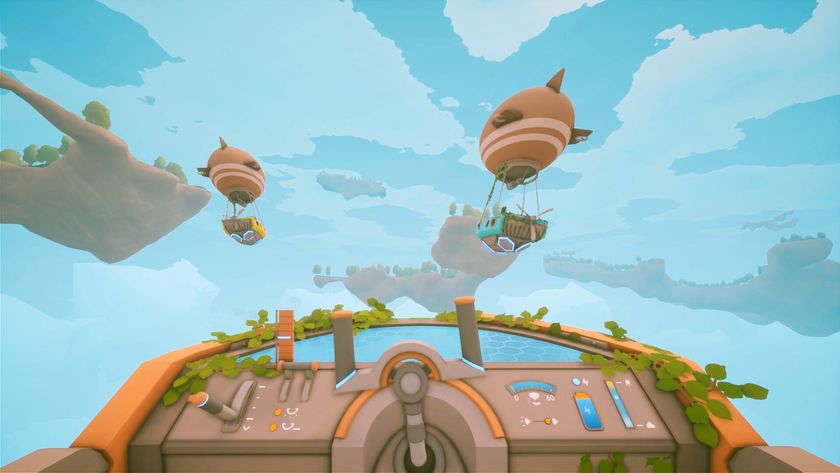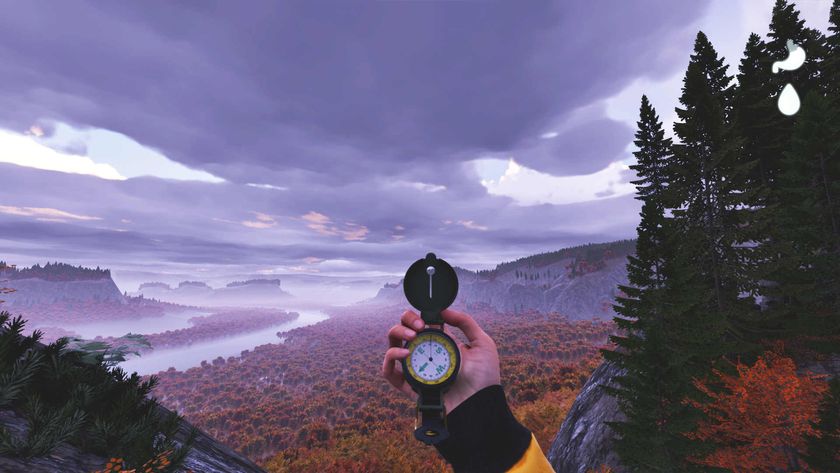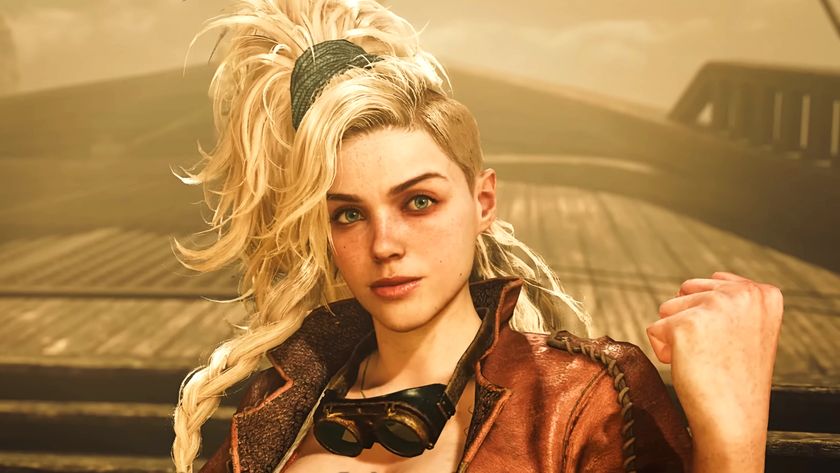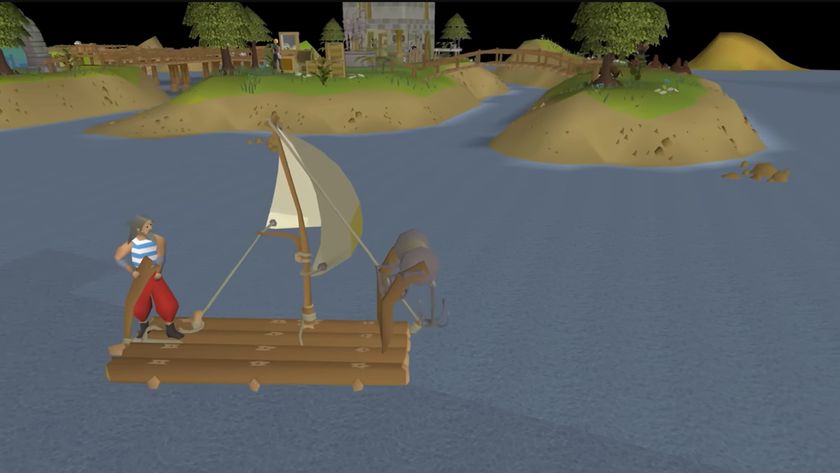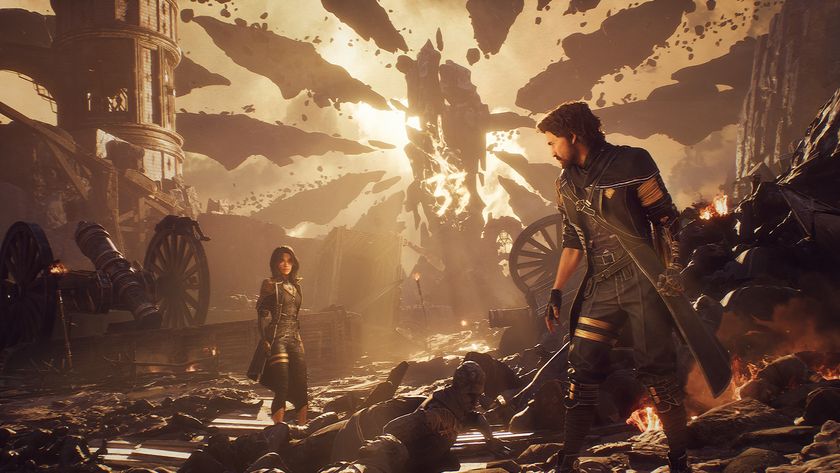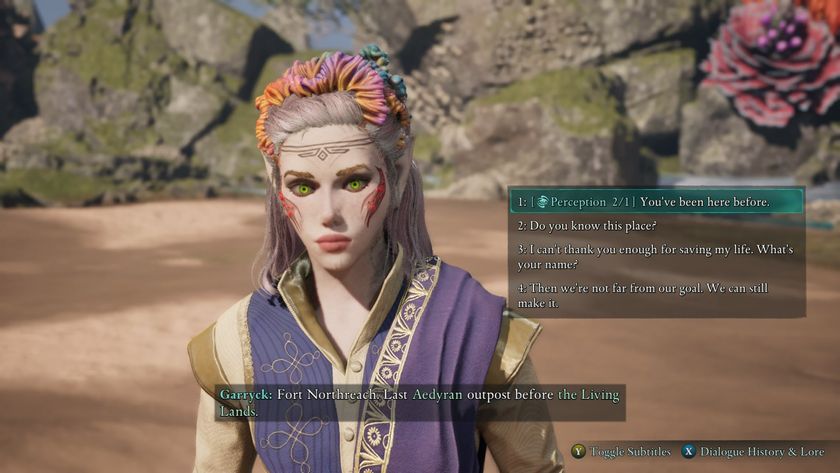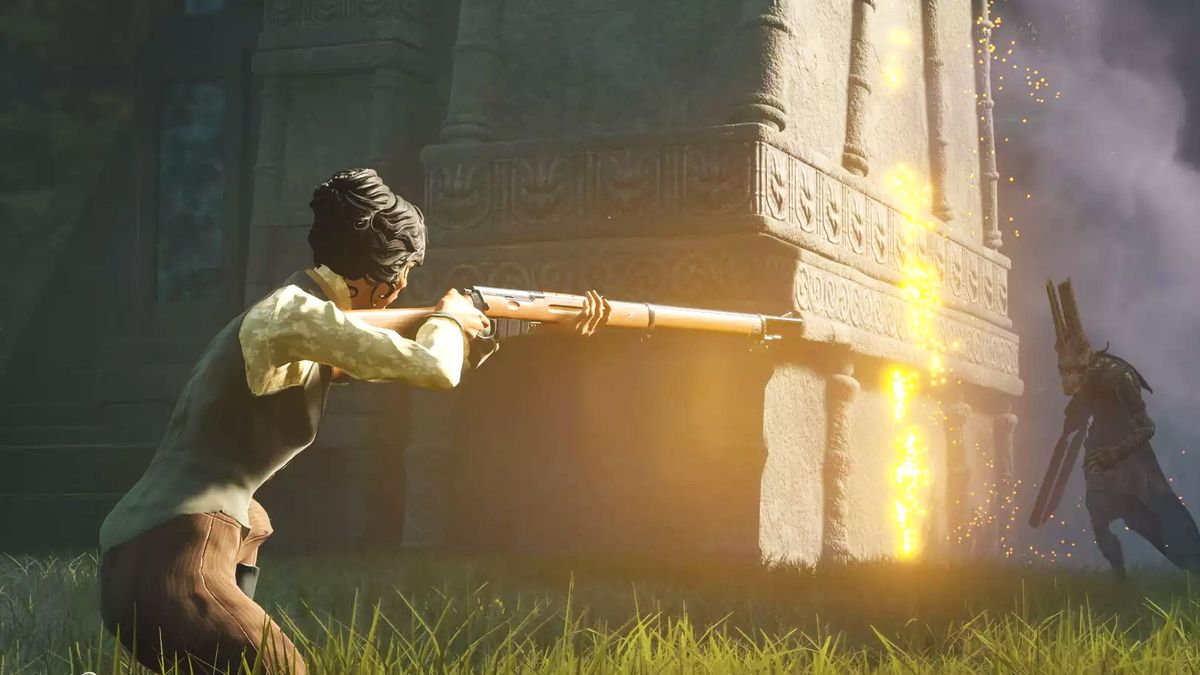
"I think it's cool to see survival crafting having a moment," says Aaryn Flynn. For the former BioWare chief, who left his mark on everything from Baldur's Gate 2 and Neverwinter Nights to Mass Effect, Dragon Age, and even Anthem, that "moment" is certainly good news – as Flynn and I speak, his upcoming survival game, Nightingale, has been through stress tests, press demos, and is now only days away from launch after more than five years of work.
That launch is coming into the midst of a seriously busy period for the genre. 2024 has already seen the release of two hit early access survival games in Palworld and Enshrouded, and this week alone will see the release of three more, as Pacific Drive and Nightingale launch. Meanwhile, Sons of the Forest, a sequel to one of the most successful examples of the genre ever made, is hitting its 1.0 release. But Flynn is far from phased by that busy release calendar – in fact, he seems actively energized by it.
"There might be short-term competition," he admits. "Obviously, there's only so many dollars to go around. But I think long-term it all nets out and everything's elevated. And so it just puts more visibility into the genre, it gives us all more ideas, and it's a bigger, more interesting melting pot of creativity."
Gaslamps into the future

Nightingale thrives on that creativity. A 'gaslamp fantasy' shaped by a Victoriana aesthetic and the blurring of the line between fact and fiction, it is in many ways entirely unlike any other survival game. Puck – the fairy from Shakespeare's A Midsummer Night's Dream – is your guide through its mysterious realms, speaking to you through the hollow eyes of a Venetian mask, and characters from Shelley and Stevenson fill out its world alongside real historical figures.
Nightingale's alternative history diverged from our own in the 19th century when inhabitants of the mystical Fae Realm – who had been shaping human development for aeons – revealed themselves to humanity. With the help of the Fae, humanity built portal generators to allow them to move between different realms, and Nightingale uses 'Realm Cards' to help shape the environment and effect of each Realm; one card might bring torrential rain, while another might conjure a deadly Blood Moon.
Flynn tells me it took the team nearly 18 months to bring the realm system to life, and that it was only made possible by the switch to Unreal Engine 5. Before the realms slotted into place, Flynn tells me that Nightingale would have looked "like a more typical survival crafting game." He levels that accusation at the game himself, admitting that "it does look like a pretty typical survival crafting game; you get a bit of early, crude gear, you chop some trees down, you build up your first base."
That's a somewhat deliberate early game, shaped in part by the desire to be familiar to fans of the genre. But there's a clear desire to move past the 'sticks and stones' genre staple that's plagued survival games for years: "We talked a lot and debated a lot about whether we should start with a pretty classic 'I got nothing on, and I pick up a stick'. And we made those decisions." The realm cards offer "more magic, more aesthetic, more differentiation," and Flynn hopes that they'll help shape a long-running meta, but while he says that 'sticks and stones' has its advantages, he also makes a request: "Don't ask me if I'd do it again if we started the project again."
Sign up to the 12DOVE Newsletter
Weekly digests, tales from the communities you love, and more
Sticks and Stones
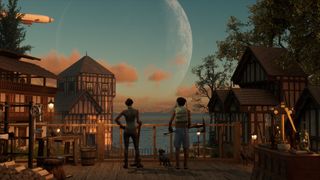
That uncertainty stems from the huge diversification that the survival genre has been through since work began on Nightingale: "When we cemented the bones of the project," games like Rust, Ark: Survival Evolved, Scum, and Conan Exiles "were the big survival crafting games." It wasn't until Valheim released in 2021 that Flynn says he really started to see what a different kind of survival game could be like.
"It gave us confidence in some of the things we were doing here. Because Valheim is a really beautiful, distinct world – a bit of magic, a bit of mystery." Creatively, Flynn admits that the Nightingale's aesthetic was chosen because it helped energize the development team, pushing them to "make cool things" in its world, but there's a palpable sense of relief in the transformative effect that Valheim had on the genre.
Despite his "respect" for the likes of Rust and Ark, Flynn says that their focus on PvP meant that the Nightingale team could never follow their lessons particularly closely. By contrast, he waxes lyrical about Valheim: "I don't think you can be a developer in this industry and not just be unbelievably impressed by what they accomplished, especially as a small team." 2021's hit survival game, inspired by Norse mythology, might not have entirely re-shaped the genre in its image, but it's clear that the diversity that it's helped usher in is an inspiration to Flynn.
Since development started in 2018, he thinks we've seen a "Cambrian Explosion" in the genre, referring to the prehistoric expansion of evolutionary diversity that occurred across the world more than 500 million years ago. Through our conversation, I point to the wave of survival games that Nightingale will be actively competing with; the almost Lovecraftian tones of Sons of the Forest; the mechanized, roguelike stylings of Pacific Drive; Enshrouded's medieval, Valheim-esque aesthetic; and the tongue-in-cheek vibes of Palworld. Flynn isn't fazed by any of them.
"They're all so different, and that's great. I think it's fascinating – those games are all a different mix of aesthetics and mechanics and creative energies. The only thing they have in common is that I think they're all 30 bucks. But from there it goes in every direction, and I think that's really cool, it's just a really neat place to be."
It's fair to say that our list of the best survival games looks very different today than it did five years ago.

I'm GamesRadar's news editor, working with the team to deliver breaking news from across the industry. I started my journalistic career while getting my degree in English Literature at the University of Warwick, where I also worked as Games Editor on the student newspaper, The Boar. Since then, I've run the news sections at PCGamesN and Kotaku UK, and also regularly contributed to PC Gamer. As you might be able to tell, PC is my platform of choice, so you can regularly find me playing League of Legends or Steam's latest indie hit.

